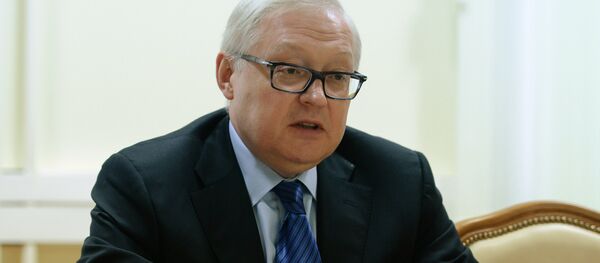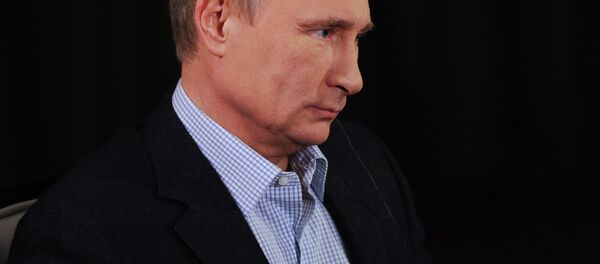WASHINGTON, December 17 (Sputnik) — Additional negotiations between the United States and Russia are not sufficient to de-escalate the conflict in Ukraine, which erupted earlier this year between Kiev authorities and independence fighters in the southeast, former US ambassador to Ukraine William B. Taylor has told Sputnik.
"What we would like to see is a de-escalation," Taylor said Tuesday, emphasizing, however, that it is not "a matter of US-Russian negotiations".
More important than negotiations between the United States and Russia are talks between Russian President Vladimir Putin and Ukrainian President Petro Poroshenko, Taylor said, adding that "the question is Mr. Putin and his dealing with Mr. Poroshenko. That's what we're after."
However, the United States and its Western partners do have an active role in enacting further sanctions against Russia to reshape Putin's policy with regard to Ukraine, Taylor stressed.
Earlier on Tuesday, Russian Foreign Minister Sergei Lavrov told the France 24 TV channel that "there is reason for some cautious optimism" about future talks on Ukrainian reconciliation.
On Wednesday, the Kremlin press service announced that Putin had held telephone talks with Poroshenko, German Chancellor Angela Merkel and French President Francois Hollande, discussing the situation in Ukraine and stressing that a new Contact Group meeting should be arranged to ensure that the Minsk agreements are implemented.
The first meeting of the Contact Group on Ukraine was held in September in the Belarusian capital Minsk. The meeting was attended by representatives from Russia and the Organization for Security and Co-operation in Europe (OSCE) and resulted in the signing of a ceasefire agreement between Kiev and independence supporters.
Despite Russia's contribution to the establishment of peace in Ukraine, the West has been accusing Moscow of meddling in the country's internal affairs, having imposed several rounds of economic sanctions on Russia.
The United States could introduce new restrictive measures against Russia in the near future, if US President Barack Obama signs the Ukraine Freedom Support Act, already approved by Congress, which stipulates fresh sanctions and authorizes the US president to provide Kiev with lethal weapons.



